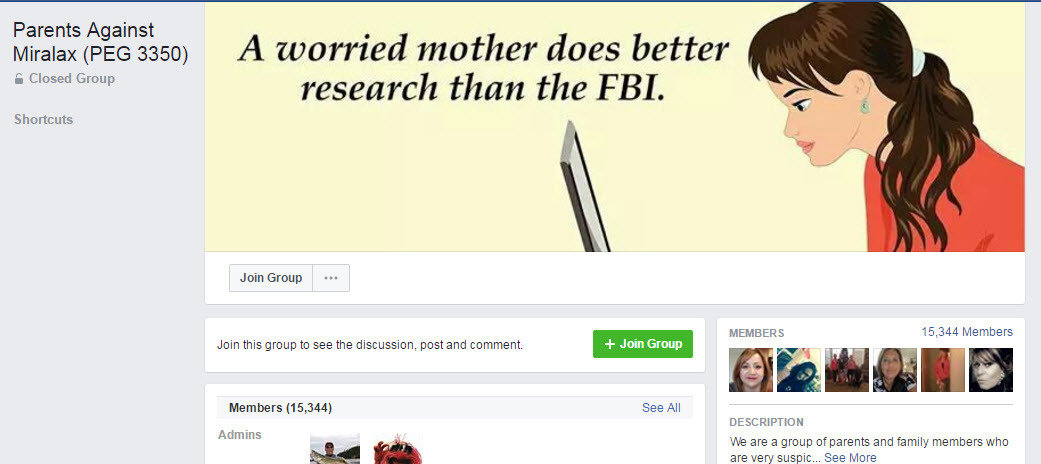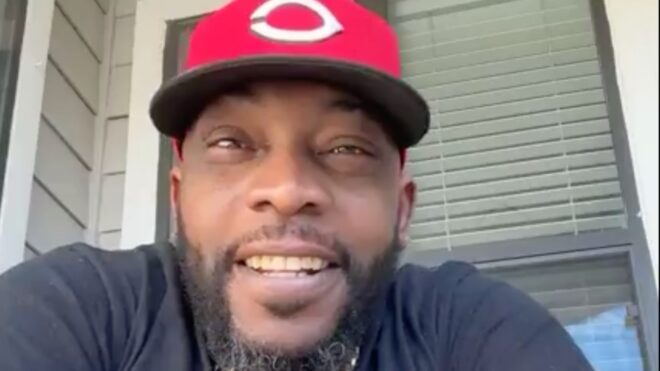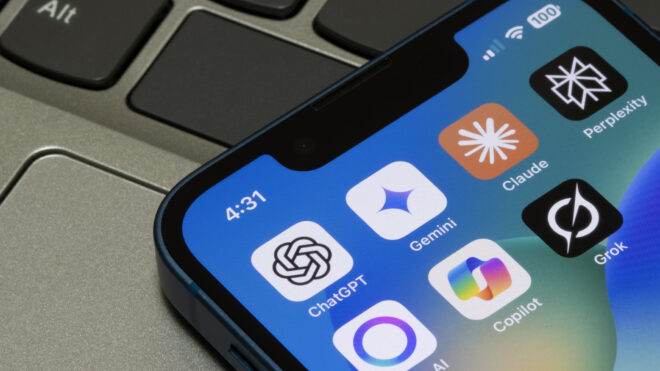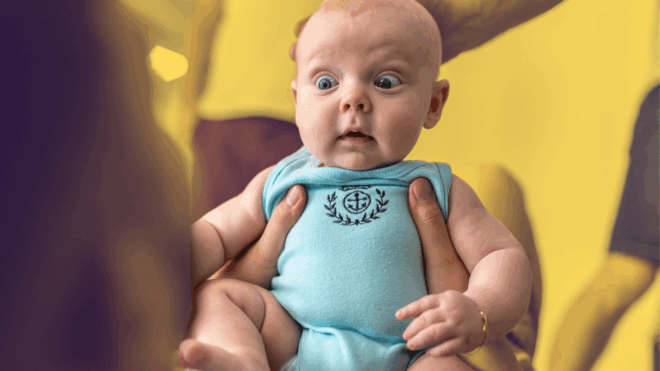Miralax has been prescribed off-label for kids under 17 years old for years, but recently, some parents have expressed concerns that the over-the-counter laxative is linked to disturbing neuropsychiatric symptoms in their little ones. Symptoms — from mood swings to aggression and rage — that seem to change their kids' personalities before their eyes. Sounds scary, right? We dug into the research and asked experts to weigh in.
As Parents.com reports, Miralax is thought to come along with some disturbing-sounding side effects, including "behavioral issues, speech problems, anxiety, and depression." But, parents are saying that they see alarming personality changes in their children, too.
Earlier this month, Philadephia-based 6 ABC Action News reported on various parents' experiences, including that of a mom named Jeanie Ward who gave her 3-and-a-half-year-old daughter Nicole the laxative. Ward told the news station that Nicole experienced "near psychiatric events with paranoia, mood swings, aggression, rage."
"It was horrifying to see my daughter change like that and to not completely go back to normal," she added.
After her daughter went through this traumatizing experience back in 2004, Ward participated in a citizen petition to ask the FDA to investigate Miralax — specifically a key ingredient in the drug, polyethylene glycol 3350 (PEG 3350) — and to put a warning label on the product.
More from CafeMom: Tummy Trouble in Babies: Causes & Remedies
And that's not the only word the FDA has received of concerns. The New York Times reports the FDA has received occasional reports of tremors, tics, and obsessive-compulsive behavior in children given laxatives containing PEG 3350. And the agency sent a brief to researchers in 2014 that said it had tested eight batches of Miralax and found tiny amounts of ethylene glycol (EG) and diethylene glycol (DEG), ingredients in antifreeze, in all of them. They believed that the toxins were impurities from the manufacturing process.
The jury is still out, as far as conclusive research goes, but the FDA awarded nearly $325K to the Children's Hospital of Philadelphia to study whether PEG 3350 might be absorbed by kids and whether the use of laxatives is linked to these reported psychiatric problems.
Although the study is ongoing, the FDA told 6 ABC Action News that there is "insufficient data to demonstrate a link between PEG 3350 and serious neuropsychiatric issues in children." (You can read the full statement on the 6 ABC Action News site.)
The Children's Hospital says it can't comment because the study is incomplete, and that it will submit its findings to the FDA.
More from CafeMom: 11 Kid-Friendly Foods That Have Been Linked to Cancer
For its part, Miralax's parent company, Bayer, which acquired the drug last year, told 6 ABC News:
While MiraLAX is not labeled for use in the pediatric population, there have been many clinical studies conducted with PEG 3350 in pediatric populations which have demonstrated safety for short and long-term use in children with a history of chronic constipation. As part of Bayer's ongoing commitment to consumer well-being, we regularly track, analyze and report all adverse event data related to the use of the product. Results of this ongoing monitoring support the continued safe use of MiraLAX.
In the meantime, parents are left wondering how in the world they should feel about giving their little ones Miralax.
It's more than a little disquieting that Jeanie Ward and other parents quoted by 6 ABC are far from alone in their concerns about the drug. A Facebook group called Parents Against Miralax has over 15,000 members.

"We are a group of parents and family members who are very suspicious of PEG 3350 and are here to discuss its effects on our children," reads the group description. "We discuss alternative options and ways to talk to doctors about our opposition to this very dangerous drug. We are not a replacement for the type of health care you choose, we only speak from experience."
More from CafeMom: New Peanut Guidelines Could Save Your Baby From Developing a Deadly Allergy
That's why CafeMom checked with Daniel Ganjian, MD, a board certified pediatrician at Providence Saint John's Health Center in Santa Monica, California. "Parents should not be concerned at this time, given the wide usage of it without significant problems," Dr. Ganjian says.
However, he believes the scary side effects being reported on do make a case for investigation. "We must take the complaints seriously and look further into the claim, so we can make the best clinical recommendation for parents and their child or children," Dr. Ganjian says.
Parents should feel comfortable giving their kids Miralax under the supervision of a pediatrician, according to Dr. Ganjian.
His thoughts echo those of Steve J. Hodges, MD, associate professor of pediatric urology at Wake Forest University School of Medicine in Winston-Salem, North Carolina, who wrote an op-ed for Parents.com in which he reassured parents: "More than 100 studies have found PEG 3350 is safe to use in children, and I have found no published studies linking Miralax to severe or harmful side effects. Nonetheless, I welcome all inquiries into the safety of this ubiquitous laxative."
More from CafeMom: 12 Foods & Drinks That Will Help Your Kids Poop
That said, if you'd rather try something else to address your LO's constipation, Dr. Ganjian recommends upping his or her fluid and fiber intake. Your child will also do well to eat more fruits like prunes, pears, plums, apricot, cherries, peaches, nectarines, grapes, berries, melons, and mango, and decrease the intake of apples, potatoes, bananas, and carrots, he says. Physical therapy is an option, too.
Fingers crossed the Children's Hospital study's findings come out soon and serve to further put many parents' minds at ease.




